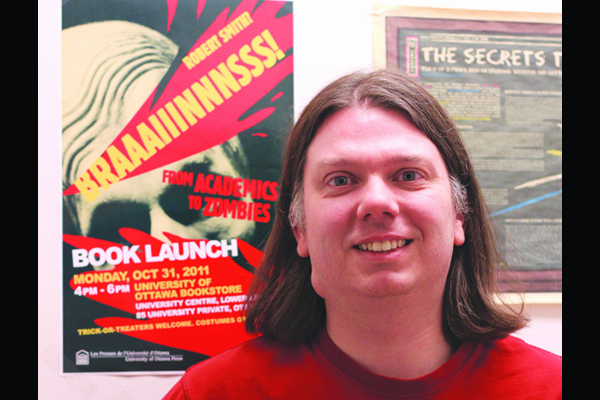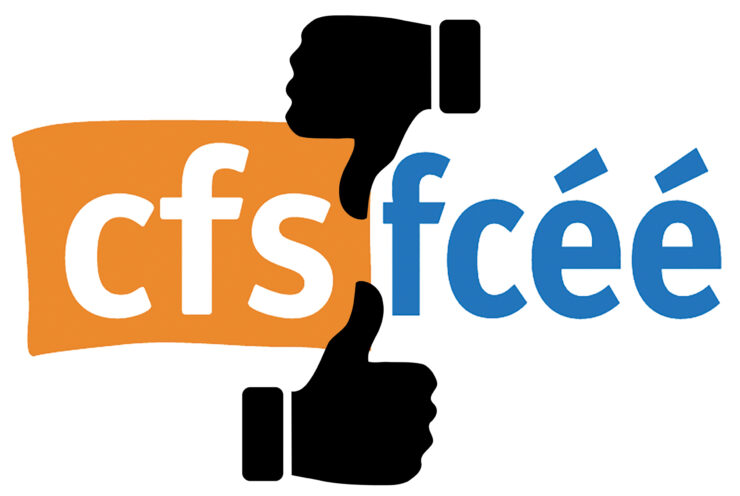U of O prof explores the mathematics of a zombie epidemic
Photo: Marta Kierkus
If you ever find yourself running away from a zombie horde, you probably won’t be thinking about math. But maybe you should be.
Lots of people think math is boring, and that’s a problem, according to University of Ottawa professor Robert Smith?. (No, that’s not an error—the question mark is part of his name.)
Smith? studies infectious disease modelling, and as it turns out, a plague of the undead isn’t that different from, well, a real life one. And with that, he brings in zombies to further explain complex theories.
“They show you how infections might occur,” he says.
“If you think about physics, there are black holes, the Higgs boson … it’s exciting,” he says. “And I think math could do exactly the same thing.”
His new book, titled Mathematical Modelling for Zombies, aims to make math more accessible, using zombies as a hook. “I got emails from high school teachers saying thank you, finally my kids care about math,” he says. “It touched people’s imaginations.”
Not bad for a lesson plan modelled after Shaun of the Dead.
The book uses zombies as a lens through which to examine infectious diseases. It also analyzes the spread of news in the media and online, changes in government policy, and other factors that would be affected in the wake of a zombie breakout.
It’s far from his first foray into the world of undead academia. In 2009 he published a paper on a similar topic. “I thought this (would) be amusing to me and no one else,” he said, but instead it prompted an enthusiastic response. The paper was featured by a number of major media organizations, including the CBC, the BBC, and the Wall Street Journal.
In fact, the Centre for Disease Control and Prevention in the United States even released a zombie preparedness plan based on the paper.
“I think they realized essentially the same thing that I realized, which is that zombies make things accessible,” says Smith?. “It’s ironic that this fictional disease makes people care more, but it does.”
So what to do in the case of a zombie apocalypse? “They’re not very good at moving around,” he says, so barricades are an effective tactic. “We need to work as a team,” he adds. “After all, it only takes one idiot to open a door, and the zombies are in.”
Our best weapon is our intelligence and creativity, he says. “You build a moat around the university and fill it with crocodiles to eat the zombies, and we’re good to go.”
It’s best we start packing for an apocalypse then.





